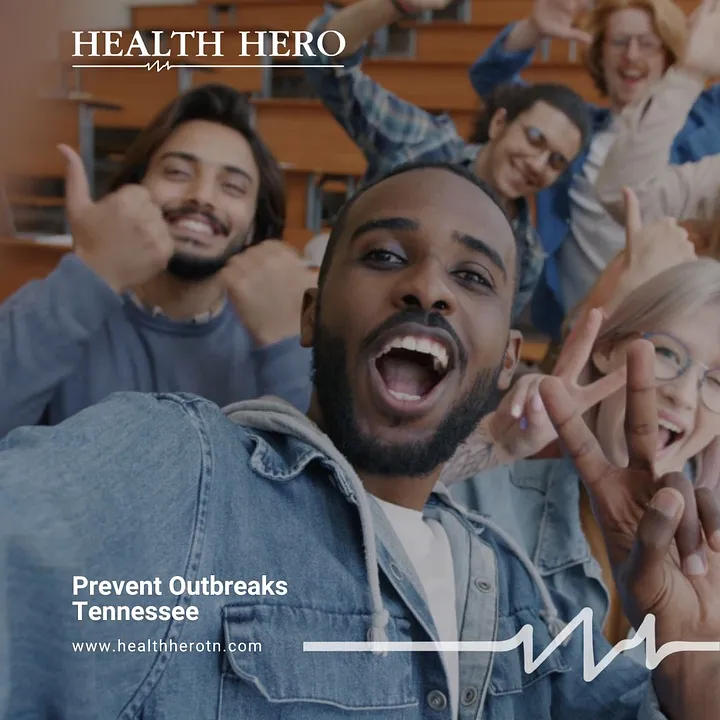Vaccinations are one of the most effective ways to prevent the spreading of contagious diseases. Yet, despite their proven track record, vaccine hesitancy is on the rise, leading to increased risks for individuals and communities alike. The decision to skip vaccinations doesn’t just affect the unvaccinated person — it has far-reaching consequences that can lead to severe outbreaks of dangerous diseases, particularly on college campuses. Here are some eye-opening facts highlighting the importance of staying up-to-date with vaccinations, especially for college students.
Why College Students Need to Be Vaccinated
Colleges and universities are unique environments where students live, study, and socialize in close quarters. This proximity facilitates the rapid spread of infectious diseases, making it essential for students to be fully vaccinated. Dormitories, classrooms, and social gatherings can become hotspots for disease transmission if vaccination rates are low. College students often travel internationally, increasing the risk of encountering and spreading infectious diseases. By getting vaccinated, college students not only protect themselves but also help maintain a healthy campus environment and prevent potential outbreaks.
Fact 1: Measles Resurgence
Statistic: Measles cases increased by 556% in Europe from 2016 to 2019 due to declining vaccination rates. Source: World Health Organization (WHO)
Measles is a highly contagious virus that was once nearly eradicated in many parts of the world due to widespread vaccination efforts. However, declining vaccination rates have led to a resurgence of this dangerous disease. In Europe, measles cases skyrocketed by 556% between 2016 and 2019, demonstrating how quickly the virus can spread when vaccination coverage drops. Measles can cause severe complications, including pneumonia, encephalitis, and even death, making vaccination essential for college students.
Fact 2: Whooping Cough (Pertussis) Outbreaks
Statistic: In 2012, the United States experienced the largest whooping cough outbreak in nearly 60 years, with over 48,000 cases and 20 deaths. Source: Centers for Disease Control and Prevention (CDC)
Whooping cough, or pertussis, is another vaccine-preventable disease that has returned to areas with low vaccination rates. The 2012 outbreak in the United States saw over 48,000 reported cases and resulted in 20 deaths, primarily among infants who were too young to be fully vaccinated. On college campuses, whooping cough can spread rapidly among students, leading to severe coughing fits, pneumonia, and other complications. Ensuring that college students are vaccinated helps protect them and vulnerable populations they may come into contact with.
Fact 3: Polio Reemergence
Statistic: Polio, a disease that was nearly eradicated, has seen a resurgence in countries with low vaccination rates, including parts of Africa and Asia. Source: Global Polio Eradication Initiative (GPEI)
Polio, a crippling and potentially deadly disease, was on the verge of global eradication thanks to effective vaccination campaigns. However, in recent years, polio has reemerged in countries with low vaccination coverage, particularly in parts of Africa and Asia. This resurgence threatens to undo decades of progress and highlights the critical need for maintaining high vaccination rates to keep polio at bay. College students, who often travel internationally for study abroad programs, are at an increased risk of encountering and spreading polio. Vaccination is crucial to prevent the reintroduction of this disease into previously polio-free areas.
Fact 4: Herd Immunity Threshold
Statistic: Approximately 95% of the population needs to be vaccinated to achieve herd immunity for measles. Source: Centers for Disease Control and Prevention (CDC)
Herd immunity occurs when a significant portion of the population is vaccinated, thereby providing indirect protection to those who are not immune. About 95% of the population needs to be vaccinated for highly contagious diseases like measles to achieve herd immunity. College campuses require high vaccination rates to maintain this protective barrier. When vaccination rates fall below this threshold, outbreaks can occur, putting everyone at risk, especially those who cannot be vaccinated due to medical reasons.
Fact 5: Economic Impact of Outbreaks
Statistic: The 2014–2015 measles outbreak in the United States cost public health departments an estimated $3.4 million to contain. Source: Journal of Health Affairs
Disease outbreaks are a health risk and a significant economic burden. The 2014–2015 measles outbreak in the United States cost public health departments an estimated $3.4 million to contain. These costs include medical treatment, outbreak investigation, and public health interventions. Preventing outbreaks through vaccination is far more cost-effective than responding to them after they occur. College campuses can face significant financial and operational disruptions during disease outbreaks, emphasizing the importance of vaccination.
Fact 6: Mumps Outbreaks in Colleges
Statistic: In 2016, a mumps outbreak affected over 2,000 students across 47 states in the U.S., primarily in college settings. Source: Centers for Disease Control and Prevention (CDC)
Mumps is another disease that has seen outbreaks recently, particularly in settings where close contact is common, such as colleges. In 2016, a mumps outbreak affected over 2,000 students across 47 states in the U.S. Mumps can lead to complications such as meningitis, encephalitis, and infertility. Ensuring that students are vaccinated before college is crucial to preventing such outbreaks.
The decision to skip vaccinations has severe consequences beyond individual health risks. It can lead to outbreaks of dangerous diseases, strain public health resources, and incur significant economic costs. Vaccinations are a proven, safe, and effective way to protect yourself, your loved ones, and your community.
Don’t let misinformation and hesitancy put you and others at risk. Stay informed, stay vaccinated, and help prevent the resurgence of vaccine-preventable diseases.
By understanding these facts and sharing them with others, we can work together to maintain high vaccination rates and protect public health.


